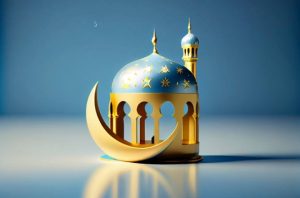 Eid ul-adha, the festive celebration that follow the completion of hajj otherwise known as the “Festival of Sacrifice” is a significant holiday in Islam that commemorates the willingness of the Prophet Ibrahim to sacrifice his own son Ismail as an act of obedience to Allah’s commandments. Yorubas would say “Odun Ileya”.
Eid ul-adha, the festive celebration that follow the completion of hajj otherwise known as the “Festival of Sacrifice” is a significant holiday in Islam that commemorates the willingness of the Prophet Ibrahim to sacrifice his own son Ismail as an act of obedience to Allah’s commandments. Yorubas would say “Odun Ileya”.
The key significance of this festival is the act of sacrificing an animal; a goat, sheep or cow which satisfied all the conditions established by the Islamic law to symbolize Ibrahim’s willingness to sacrifice his son, and sharing the meat among family, friends, and the needy to make the ummah in general happy.
Another significant act is performing special prayers at the outer spaces of the central masjid or a place earlier acquired for that purpose.
Muslims all over the globe dress up in their best clothes and give out gifts to friends and dear ones to mark the auspicious day.
It is also a day for reflecting on one’s faith and relationship with Allah and honoring the trust and obedience of Prophet Ibrahim and his son Ismail.
Here are some of the key lessons from Prophet Ibrahim’s sacrifice that brought about EID UL-ADHA:
✨Sincerity and dedication in search for truth.
✨ Pursuing truth and calling others to it.
✨ Detachment from worldly things.
✨ Loyalty and servitude.
✨Unwavering faith and support.
✨ Patience.
✨Inner strength.
✨Transformative power of faith and
✨Trust in Allah’s plan.
The ummah should keep in mind that the time of Eid is a time to show generosity to people and gratitude to the creator. Let us indulge in good deeds only.
May the peace and blessings of Allah continue to reside with you and your family 🤲









